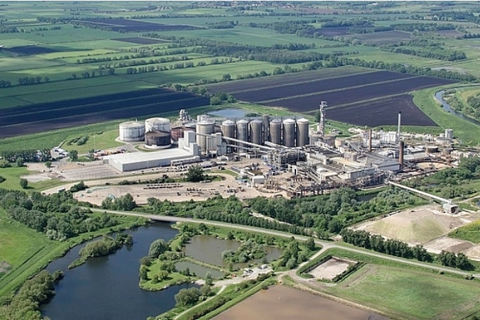Vietnam may rely on West African crude oil as domestic output falters: S&P
Nigerian and Angolan grades are seen as cheaper than Southeast Asian oil.
Vietnam is poised to actively venture into Africa to secure a regular dose of light and medium sweet crude supply for the coming years, as the country's domestic crude production continues to decline due to naturally aging fields, according to S&P Global Platts.
| Tam Dao No.01 jack-up rig operated by Vietsovpetro. Source: PetroTimes |
Meanwhile, state-run Binh Son Refining and Petrochemical (BSR) finds Nigerian and Angolan grades cheaper than Southeast Asian oil.
BSR, the operator of the 148,000 barrel per day Dung Quat refinery in central Vietnam, is under pressure to find a steady stream of feedstock supply from external sources as the supply of various domestic crude grades that primarily feeds the plant is running dry.
State-run oil firm PetroVietnam produced 11.47 million metric ton of crude oil in 2020, down 12.4% from 2019 and marking the fifth consecutive yearly decline. Vietsovpetro, a stakeholder and operator of some of major domestic upstream projects, produced estimated 3.42 million metric ton of crude oil in 2020, down 8.8% from a year ago, the company said.
Dung Quat was originally designed to process primarily domestic crude grades, including Bach Ho Light and Bach Ho Heavy, Su Tu Den, Chim Sao, Thang Long, as well as some import grades from neighboring producers, including Malaysia's Labuan and Brunei's Seria Light.
BSR had in the recent past picked up a few odd light sweet crude cargoes from the Mediterranean market and the US to cover Dung Quat's short position, but for a more steady and regular flow of feedstock procurement, the state-run company is looking at Africa for the right answer.
According to S&P Global Platts, the company is currently testing Qua Iboe crude from Nigeria and Cabinda crude from Angola, for its Dung Quat refinery.
The trial testing of the two West African grades is part of BSR's strategy to diversify its feedstock choices and reduce dependence on domestic grades including Bach Ho, the company said.
Reflecting Vietnam's faltering upstream output and its growing dependence imports for refinery feedstock requirements, the country imported 11.74 million metric ton of crude oil in 2020, up 51% from 2019.
In November 2019, the government had removed 5% import tax on crude oil to support the refining sector's growing reliance on more feedstocks from external sources and suppliers.












